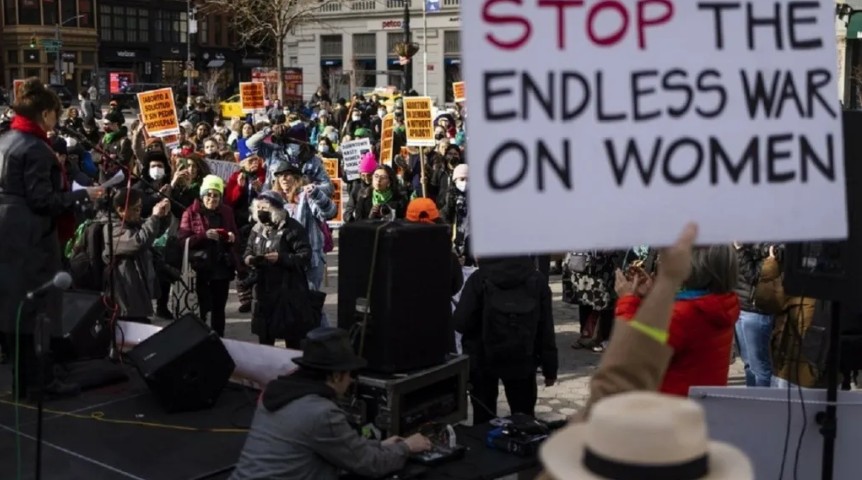Abortion regulation is returning to the states, activist jurisprudence has lost the battle, but the hard ideological battle continues.
ruled 6-3 in favor of the state of Mississippi in Dobbs v. Jackson Women's Health Organization on Friday. The state passed a law prohibiting abortion from the 15th week, unless the mother's health is at risk or the fetus is sick. This law was taken to court by an abortion clinic on the grounds that abortion is a constitutional right. Both the local and appellate courts ruled in favor of the abortion clinic. However, the Supreme Court ruled in favor of the state and ruled that Mississippi's law was not unconstitutional, and also declared that abortion is not a constitutional right because it was based on a flawed judicial decision and only states and elected representatives have the right to regulate the issue. This overturned the Roe v. Wade decision, as well as the subsequent Roe v. Casey decision (Chief Justice Roberts upheld the Mississippi decision but did not overturn Roe).
Friday's ruling means, in short, that from now on all 50 US states can decide how they want to regulate abortion.
The decision did not come as a surprise, since almost a month and a half ago, an as-yet-unidentified person leaked Justice Alito's majority opinion, from which Friday's final decision hardly deviates. Tempers flared already then, and several organizations announced the "summer of anger", promising resistance and demonstrations. Activists marched in front of the judges' houses, whose addresses were published on the Internet, and the authorities arrested a man at the house of the conservative Judge Kavanaugh, who, according to his own admission, planned to kill the judge.
After the decision, tempers were unleashed both on the streets and on social media, experts cried on television, democratic politicians called the decision illegitimate, and called for mobilization and resistance.
Major American companies, including Disney, Netflix, Meta (formerly Facebook) have announced that they are willing to pay for their employees to travel to a state where abortion is easier to perform.
President Joe Biden addressed Americans in which he claimed that the Supreme Court had "taken away a fundamental constitutional right" and expressed his sadness over the case, but said that this is not the end of the debate and that everyone should vote for Democrats. Biden introduced a bill that would raise the right to abortion to the level of law. (However, there is no adequate Democratic majority for this.)
Most Republicans celebrated, as conservative organizations have been fighting to overturn the decision for 50 years. Texas Senator Ted Cruz said the following to Fox News:
"This is a huge victory for life. It will save millions of innocent babies.”
Several legal scholars, including former Supreme Court Justice Ruth Bader Ginsburg, who died in 2020, pointed out that Roe v. Wade was a flawed decision. In 1973, the court included the right to abortion in the 14th amendment of the constitution.
What could really make it a constitutional right would be the adoption of a new amendment, but this would require a majority in Congress and in the states for the Democrats, which they do not have.
Conservative commentator Ben Shapiro said that the justices who opposed the decision could not explain why the majority opinion was wrong. "The dissent, of course, is rooted in the idea that states have no say on abortion, but that the wisest robed oligarchs can do so in the name of a constitution that says nothing on the issue," Shapiro wrote.
It is worth pointing out that the 15-week ban in Mississippi is more liberal than the European practice, where the limit is 12 weeks in most places.
The decision will only make the fight over abortion more acute, as the debate about the appropriate regulation may start in each state. There are states that are prepared on both sides, immediately enacting strict bans, and others are reaffirming their commitment to abortion (red South Dakota is an example of the former, Michigan is the latter). The anti-abortion or pro-life organizations could celebrate a big victory, but it is expected that the debate and the fight will only be fiercer than before.
It's the Democrats' political fault
In his speech, Biden emphasized that the decision was largely due to the three judges appointed by Donald Trump. What he didn't add, however, and probably many have already forgotten
the appointment of the three conservative judges is the result of a strategic mistake by the Democrats.
Indeed, in 2013, the Democratic Senate Majority Leader Harry Reid extended the so-called "nuclear option rule" to judicial appointments. This meant that normally the filibuster (obstruction) of the minority could be broken with 60 votes, the nuclear option made it possible to break the resistance with a simple majority and put the candidate to the vote. This is how it happened that after the Republicans gained the majority, they voted for all three judges with the help of the nuclear option. As a result, for the first time in many decades, under Trump, the 9-person court tilted in a slightly conservative direction.
Another mistake the Democrats made on the issue was radical support for abortion. The original attitude was Bill Clinton's "safe and rare" policy, which matched the opinion of the average American. However, this has reversed in the last twenty years, and on Friday, the majority of activists protesting in front of the court demanded unrestricted abortion.
For example, there was an advanced pregnant woman who wrote the following : "This is not a person yet."
Instead of the 12-week limit accepted in Europe, prior to Friday's decision, of Axios , in the United States abortions were allowed in 16 states up to 20-22 weeks, in 26 states up to 24 weeks or when the fetus is already viable, and in 7 states it was allowed until birth abortion, the remaining two states had a six-week ban. These liberal rules were made possible by Roe, which caused the courts to declare any more serious restrictions illegal.
However, a FiveThirtyEight survey showed that the majority of Americans support abortion up to the first trimester (including some who only support it in the event of violence), but support drops dramatically to 28% in the second trimester.
In other words, there are many more people who oppose abortion than those who support it in the second and even the third trimester. Opponents are overwhelmingly conservative, but there are also opponents among Democrats, although they are only a small minority. Thus, the intense emotions that followed the decision probably do not reflect the views of the majority of Americans.
Americans therefore have a complex view of the issue, and in many Republican states where the restrictions are now being enacted, a large majority of the population supports them, while liberal states continue to have lenient laws.
Political consequences
According to surveys, a huge Republican victory can be expected in the midterm elections in the fall, so the decision can help mobilize the Democrats. In his speech, Biden immediately called for a vote, fundraising e-mails started, and countless large movements can be expected.
The only question is whether abortion is really such an important issue to voters that it will tip the Democrats' unpopularity.
There are still many months to go and currently the most important voting issues are: the price of gasoline, the increase in food prices, the border crisis and education, especially the education of elementary and high school age groups. These themes have defined the campaigns so far, and according to surveys, they are the most important to Americans. The Democrats may be moved by the topic, but the average voter will probably be more important to the issues of livelihood and the economy.
The court's decision could set in motion Democratic efforts to add new justices to the Supreme Court's current nine justices to restore a liberal majority. This was previously opposed by several Democrats.
Liberal politicians are used to pushing through the courts decisions that do not enjoy the support of the majority.
Instead of sloppy legislation, it was enough to appoint as many liberal judges as possible, who then freely interpreted the constitution and made decisions that would not have passed either in Congress or in most local state legislatures.
The Dobbs v. Jackson decision was a slap in the face to the activist court partisans, who filled and would fill the courts with ideological judges. The US Constitution does not grant the right to make laws to the judicial branch, this is the task of elected representatives. This was confirmed by the decision. As Yoram Hazony put it on Friday :
“Something of the old spirit of America still remains. Recovery is still possible.”
Featured image: The abortion rights rally in New York. EPA/Justin Lane













